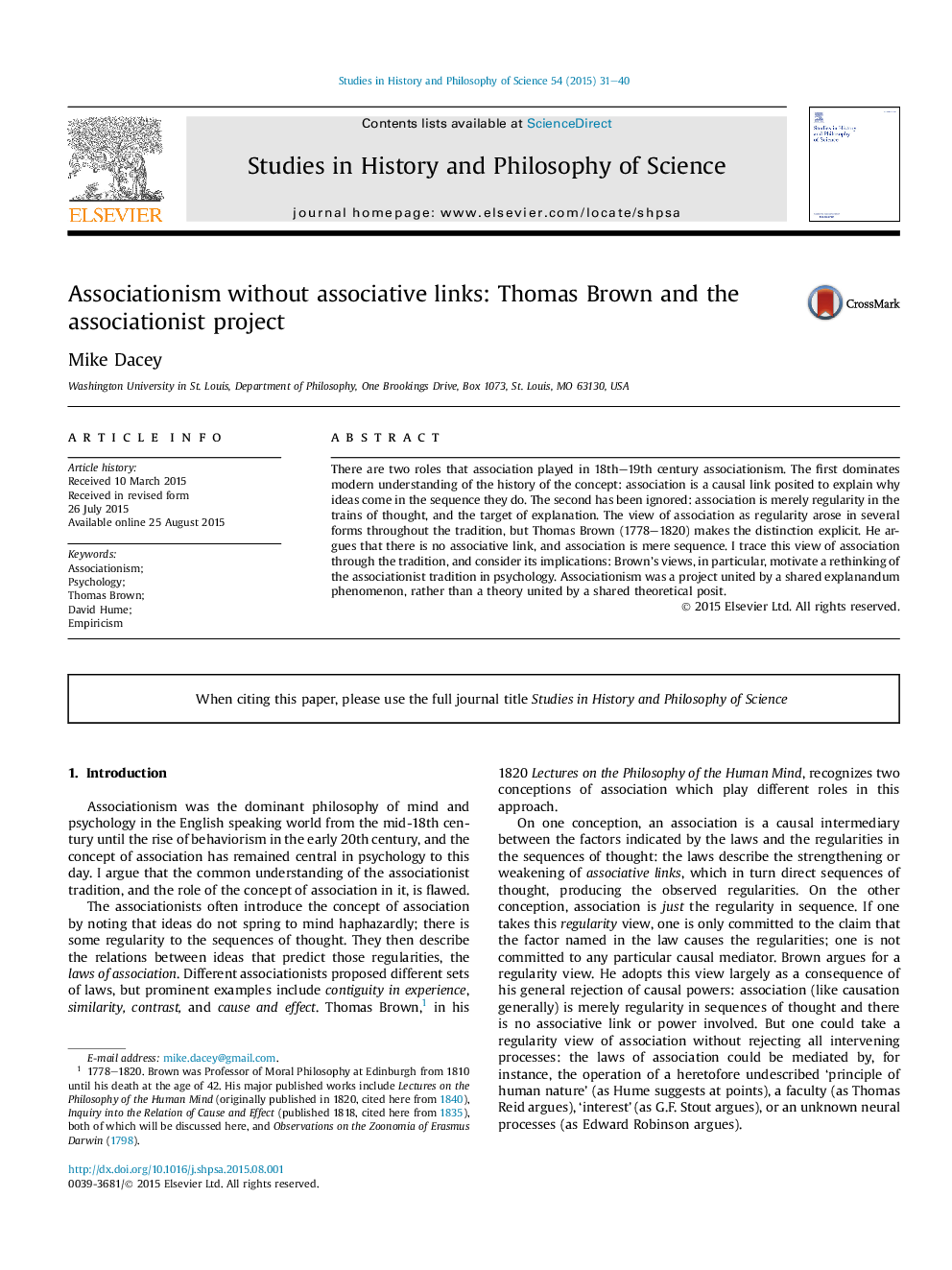| Article ID | Journal | Published Year | Pages | File Type |
|---|---|---|---|---|
| 1160209 | Studies in History and Philosophy of Science Part A | 2015 | 10 Pages |
Abstract
There are two roles that association played in 18th-19th century associationism. The first dominates modern understanding of the history of the concept: association is a causal link posited to explain why ideas come in the sequence they do. The second has been ignored: association is merely regularity in the trains of thought, and the target of explanation. The view of association as regularity arose in several forms throughout the tradition, but Thomas Brown (1778-1820) makes the distinction explicit. He argues that there is no associative link, and association is mere sequence. I trace this view of association through the tradition, and consider its implications: Brown's views, in particular, motivate a rethinking of the associationist tradition in psychology. Associationism was a project united by a shared explanandum phenomenon, rather than a theory united by a shared theoretical posit.
Related Topics
Social Sciences and Humanities
Arts and Humanities
History
Authors
Mike Dacey,
